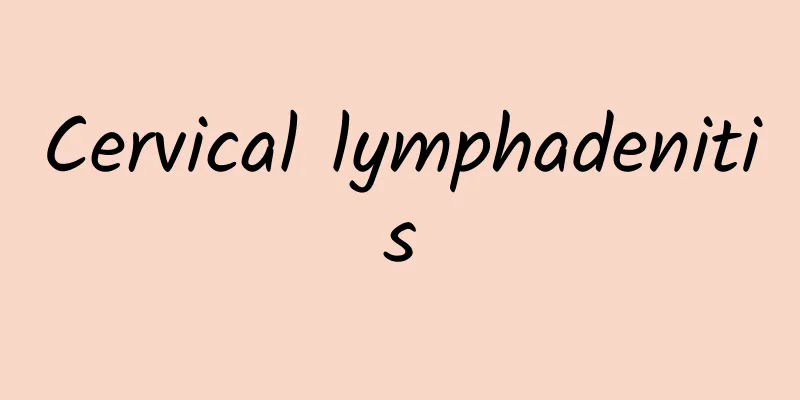Is cupping effective for cervical pain?

|
Many people often feel pain in the cervical spine. In fact, there is nothing to be surprised about the pain in the cervical spine. These are all common problems. Usually, after the cervical pain occurs, you can also use cupping in addition to massage, because some treatment methods of traditional Chinese medicine are relatively effective. You also need to pay attention to the method. First find the right point and choose the regular acupoints. Generally, you can do it at home during the cupping time. If you ask others for help, the cupping time should be controlled within half an hour. 1. Symptoms Headache, pain in the back of the head, stiff neck, difficulty turning the neck, numbness and soreness in one or both shoulders, back and fingers, or headache extending to upper back pain, chills and heat in the neck and shoulders, and swollen nodules can sometimes be felt next to the cervical spine. (II) Governing Law (1) Select acupoints: Jianjing, Dazhui, Tianzong, Quchi, and Hegu. (2) Locate Jianjing: On the shoulder, at the midpoint of the line connecting the great vertebra and the acromion end (see Figure 3-1-1). Dazhui: On the back, 1.5 inches lateral to the spinous process of the 1st thoracic vertebra [Look down and you can see a high protrusion on the vertebra at the junction of the neck and back. The protrusion that can rotate with the left and right movement of the neck is the 7th cervical vertebra, and below it is the Dazhui point. From the Dazhui point, push down one vertebrae and the acupuncture point is located 2 horizontal fingers (index and middle fingers) away from its lower edge, as shown in Figure 3-1-1]. Tianzong: On the scapula, in the central depression of the infraspinous fossa, level with the fourth thoracic vertebra (hang your arms down, draw a line from the midpoint of the inferior margin of the scapular spine to the inferior angle of the scapula, the intersection of the upper 1/3 and the lower 2/3 is the acupuncture point, press hard and you will feel obvious pain, see Figure 3-1-1). Figure 3-1-1 Jianjing, Dazhui, Tianzong Figure 3-1-1 Jianjing, Dazhui, Tianzong Quchi: At the lateral end of the elbow crease, at the midpoint of the line connecting Chize and the lateral epicondyle of the humerus when the elbow is flexed (flex the elbow to 45° with the palm facing up, on the radial side of the elbow joint, the head of the elbow crease is the acupoint, see Figure 2-21-2). Hegu: between the 1st and 2nd metacarpal bones, at the midpoint of the radial side of the 2nd metacarpal bone (place the transverse knuckle line of the palm surface of the thumb of one hand on the web edge of the thumb and index finger of the other hand, and bend the fingers to the end of the thumb tip as the acupuncture point, see Figure 2-21-2). (3) Cupping methods include tapping, moving cupping, and moxibustion. First, tap the above-mentioned parts lightly with a plum blossom needle until slight bleeding occurs. After the bleeding stops, use the cupping method. Before cupping, apply safflower oil evenly on the cup mouth and the cupping area, and continue cupping until the skin becomes flushed. After removing the cup, use moxa sticks for moxibustion for 10 minutes, once every other day, and 10 times constitute a course of treatment. 2. Blood stasis blocking collaterals 1. Symptoms Dizziness, tiredness, neck pain, or shoulder pain, blurred vision, loss of appetite, dull complexion, or accompanied by chest tightness and palpitations. (II) Governing Law (1) Select acupoints: Dazhui, Dazhui, Jianjing, Quchi, and Hegu. (2) Locate the Dazhui point: On the midline of the back, in the depression below the spinous process of the seventh cervical vertebra (see Figure 2-19-6). Dazhui: See above. Jianjing: see above. Quchi: See above. Hegu: See above. (3) Cupping method: blood pricking cupping. First, use a plum blossom needle to tap the above-mentioned acupoints 3 to 5 times until the skin turns red and there are a few bleeding spots. After tapping, cupping should be applied and the cup should be left on for 10 minutes to draw out blood stasis. Take once every other day, 10 times constitute a course of treatment. |
<<: What is the massage method for cervical spondylitis?
>>: What are the effects and ways to eat Artemisia capillaris?
Recommend
Chicken Blood Vine Wine Recipe
Millettia reticulata bracelet is a relatively com...
What are the symptoms of postpartum disease
Postpartum disease is actually a disease contract...
What causes pain in upper left tooth?
We should understand that pain in the upper left ...
Fever bloodletting acupoints
Cold and fever are common diseases. Most people h...
5-month-old fetus biparietal diameter standard
During prenatal checkups, doctors will generally ...
What is the function of a turtle shell?
In our daily life, there are many medicinal herbs...
Can you tell if you've had an abortion?
Young people nowadays have more open minds, espec...
What are the treatments for myeloma?
Myeloma patients know that they have the disease,...
Are the side effects of Jinkui Shenqi Pills serious?
Jinkui Shenqi Pills are a common Chinese medicine...
What is the TCM treatment for hypothyroidism?
The full name of hypothyroidism is hypothyroidism...
Tips for treating rhinitis
Rhinitis is a very common disease. People in Nort...
Can wormwood ash remove acne?
With the continuous improvement of living standar...
What to do if your heart rate is slow
No one can avoid getting sick if they eat whole g...
Treatment of osteoporosis
Osteoporosis is not difficult to see in today'...
What Chinese medicine can help with weight loss?
In summer, many women feel very troubled because ...









